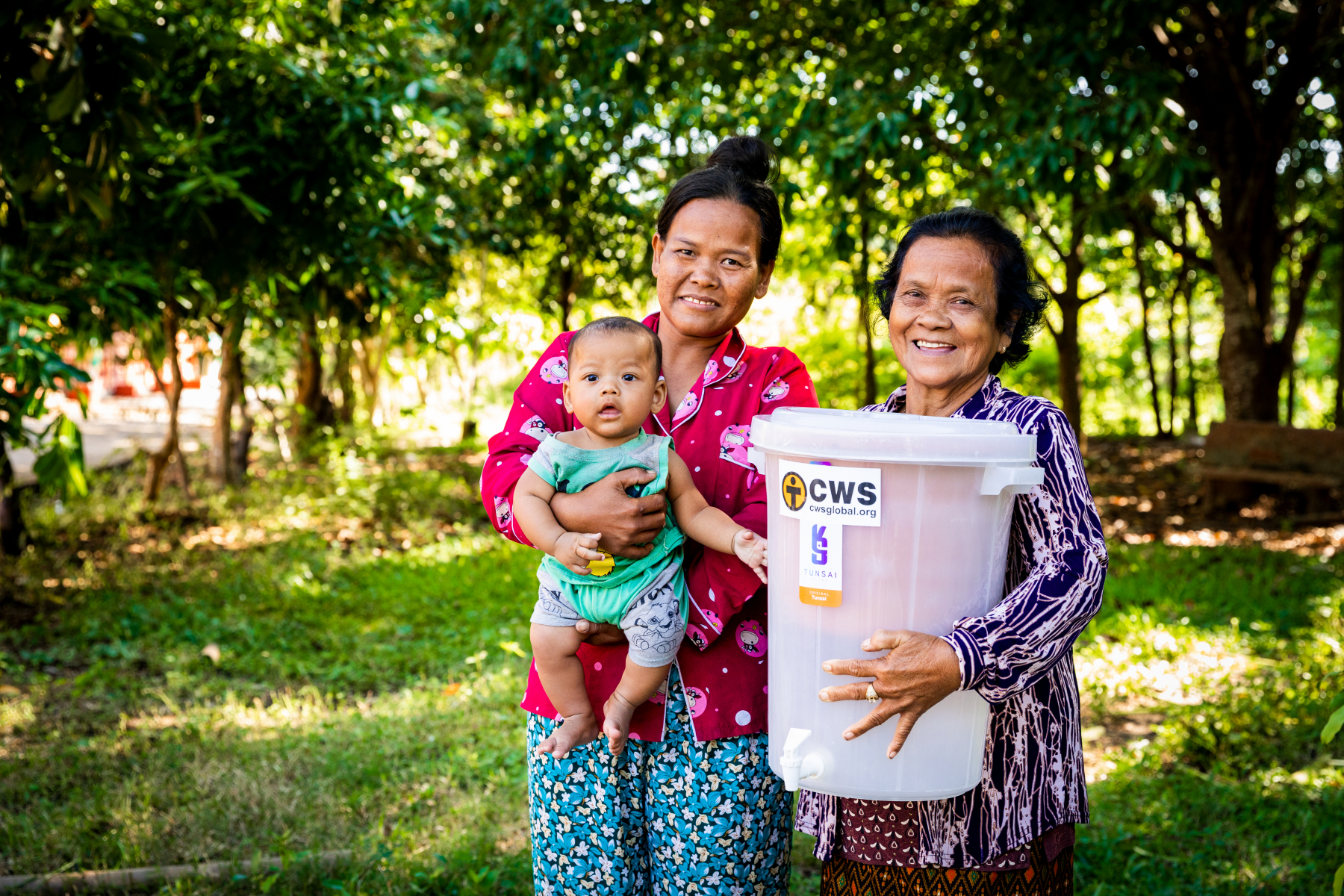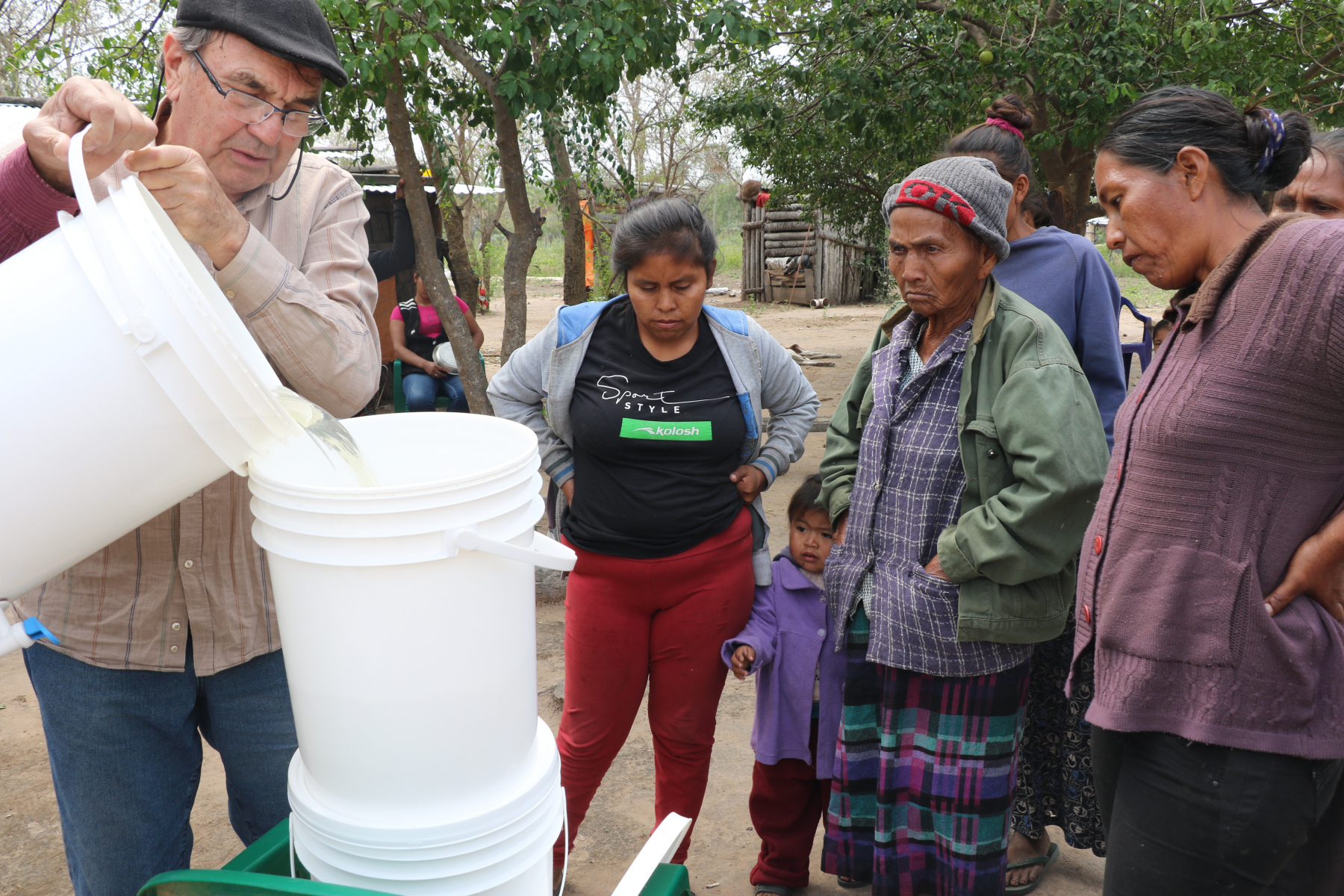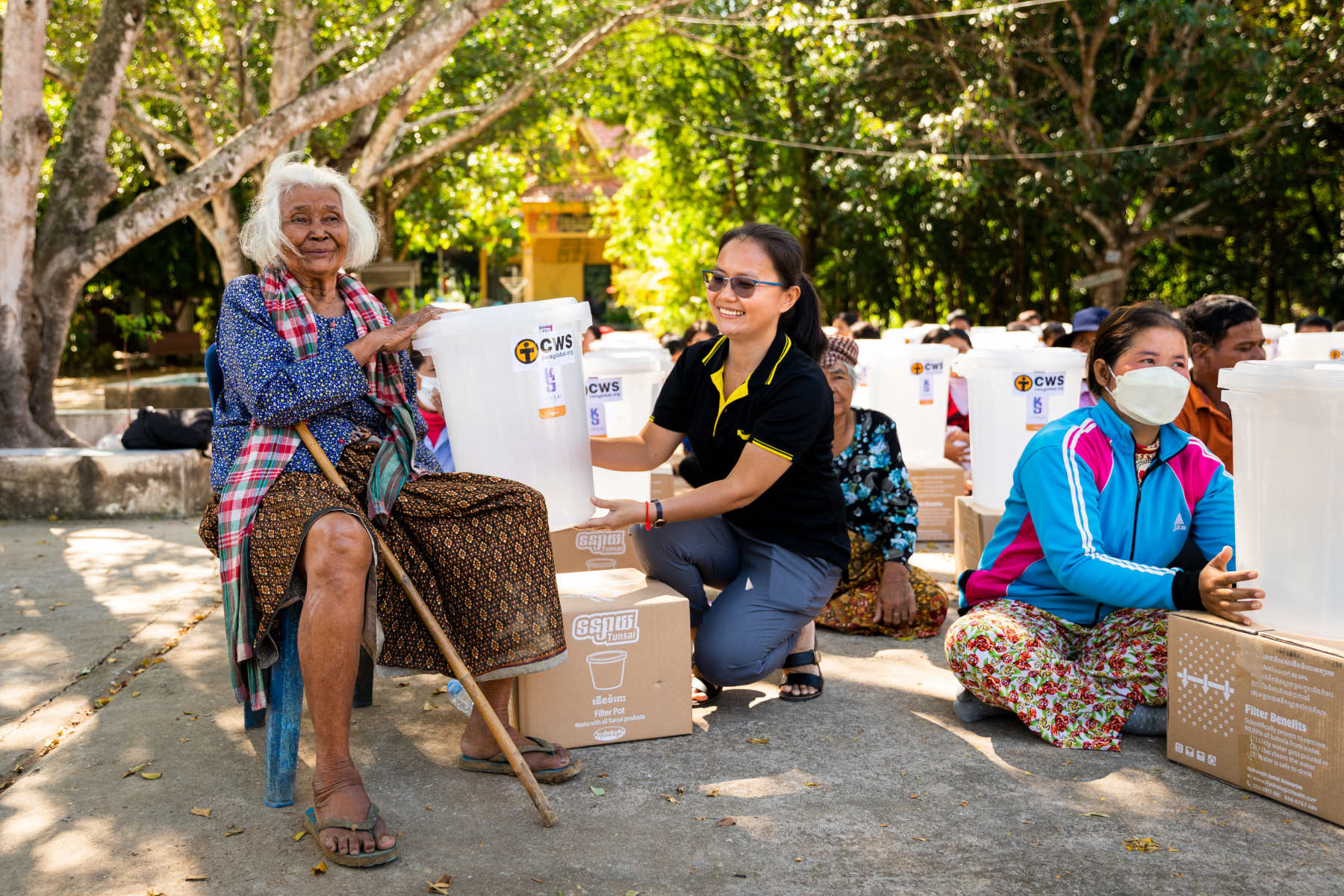Everyone deserves access to clean water, yet for millions around the world, safe drinking water and proper sanitation remain out of reach. From collapsed infrastructure and poor management to conflict and climate change, several factors contribute to families being unable to access their right to safe water.
Rising global temperatures and extreme weather events are making clean water scarcer and more polluted. Droughts and wildfires are displacing entire communities, while unpredictable rainfall is disrupting agriculture, leaving families with less food to eat and sell.
Why is water, sanitation and hygiene important?
With access to safe water and sanitation, families can protect themselves from disease, grow crops, raise livestock and build sustainable livelihoods. Communities gain access to clean drinking water and safe, dignified restroom facilities. Children, especially girls, no longer have to walk for hours to collect water—time that can instead be spent in school, learning and playing. On average, girls around the world spend an estimated 250 million hours per day carrying water, often walking more than three miles daily.
Despite how essential water is for building healthy lives, billions still lack access to clean water and sanitation. Today, approximately 3.5 billion people—46% of the world’s population—do not have adequate sanitation services, while more than 2 billion people lack access to safe drinking water.
What is CWS doing to support access to clean water and proper sanitation?
CWS partners with communities around the world to ensure families have access to safe, clean water. From drought-prone regions in Paraguay to flood-threatened villages in Cambodia, we work alongside local organizations to build sustainable water solutions that help communities adapt to climate change. In Honduras, modernized irrigation systems are helping farmers secure their food supply, while in Kenya, community-led innovations like sand dams and boreholes are making water more accessible and sustainable.
Whether through infrastructure improvements, climate adaptation projects or hygiene education, CWS is committed to empowering families with the resources they need to thrive—because access to clean water isn’t just a necessity; it’s the foundation of a healthier, more resilient future.
RELATED: Five Ways to Reduce Your Carbon Footprint
Read below to learn more about this work across CWS programs.
- In Paraguay’s Gran Chaco region, extreme heat and erratic rainfall are becoming the norm, threatening food security and water access for indigenous communities. With support from CWS and local partners, these communities are overcoming challenges like drought while building a more secure future. Mariana Ayala, a dedicated leader whose contributions have made a lasting impact, plays a key role in both, motivating women to attend workshops, meetings and assemblies and use the new knowledge at home, farms and communities.
- In Cambodia, climate change is threatening access to water and food security. CWS is addressing these risks by helping communities build resilient water infrastructure, such as retention ponds that store rainwater for drought periods. Our ecosystem-based adaptation projects also work to preserve forests and watersheds, which are critical for flood protection and sustainable livelihoods. By empowering local households to manage these resources, we ensure that communities can adapt to the growing challenges of water scarcity and climate variability.
- In Honduras, CWS local partner CASM has helped modernize the community’s water system. With new pipelines and a developing irrigation system, Valle Verde is better equipped to face climate challenges. Now, individuals like Oscar are embracing new agricultural techniques, improving their harvests, securing their food supply and building a brighter future.
- In Kenya, CWS and local partners collaborate closely with communities to discover inventive, cost-effective and environmentally friendly enhancements for water systems. These enhancements include sand dams, boreholes, weirs and rock catchments. Participating communities contribute their skills and locally sourced materials, which in turn promotes local ownership, enhances sustainability and lowers expenses.
RELATED: Climate Adaptation and Resilience in CWS Programs
How You Can Help
To learn more about the work CWS is doing to combat climate change and build resilient communities, click here. To support the work of CWS, make a gift here.





